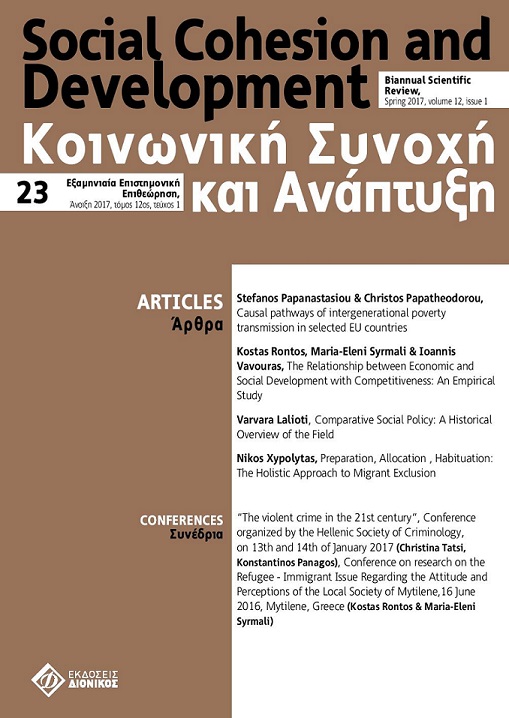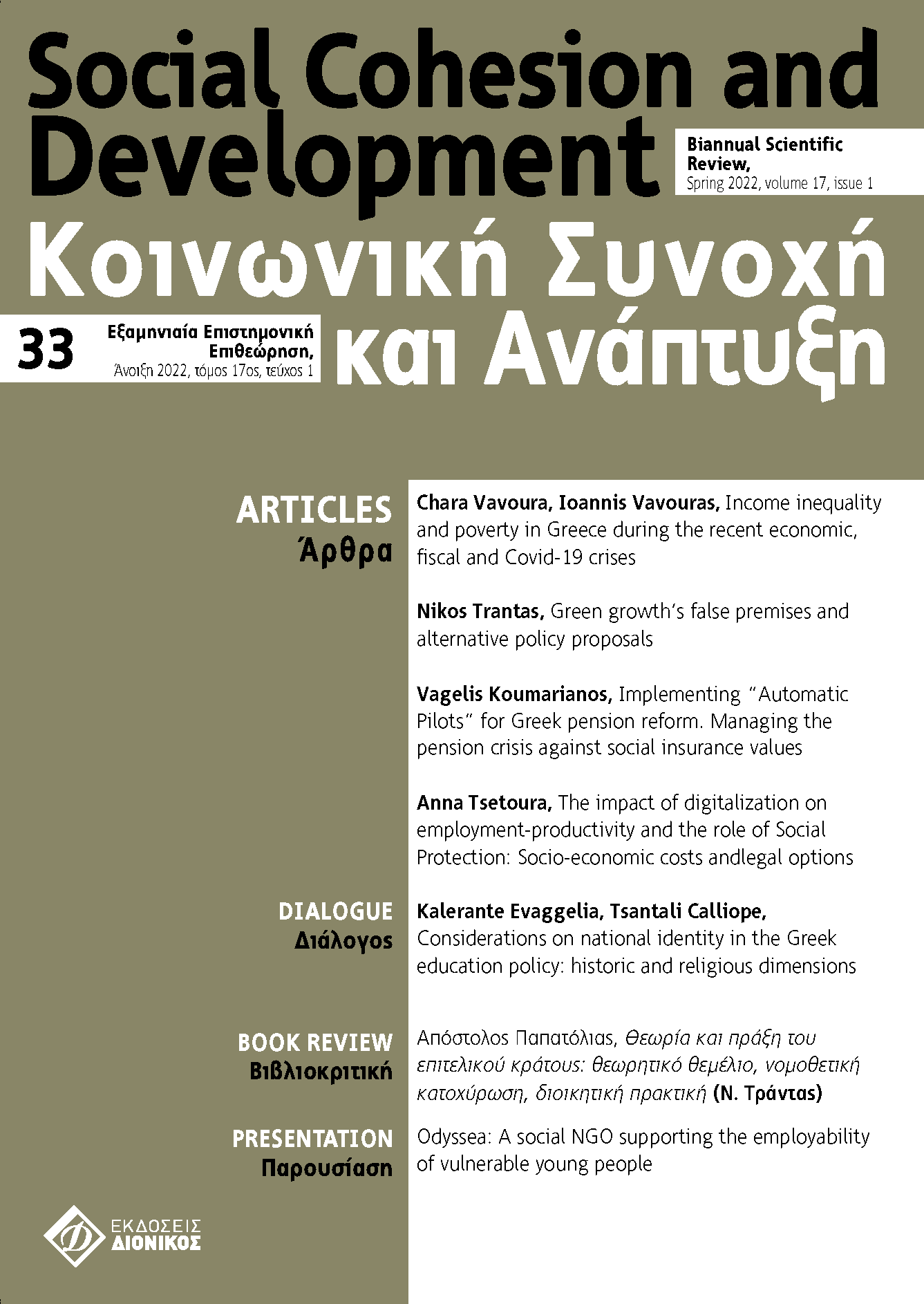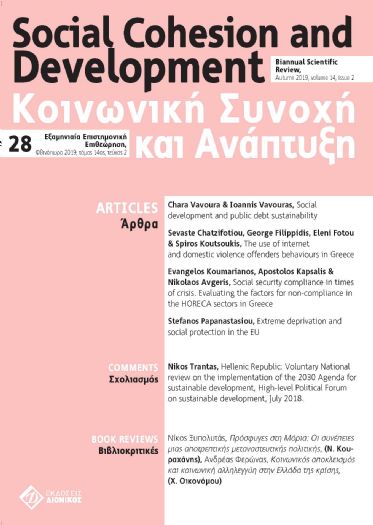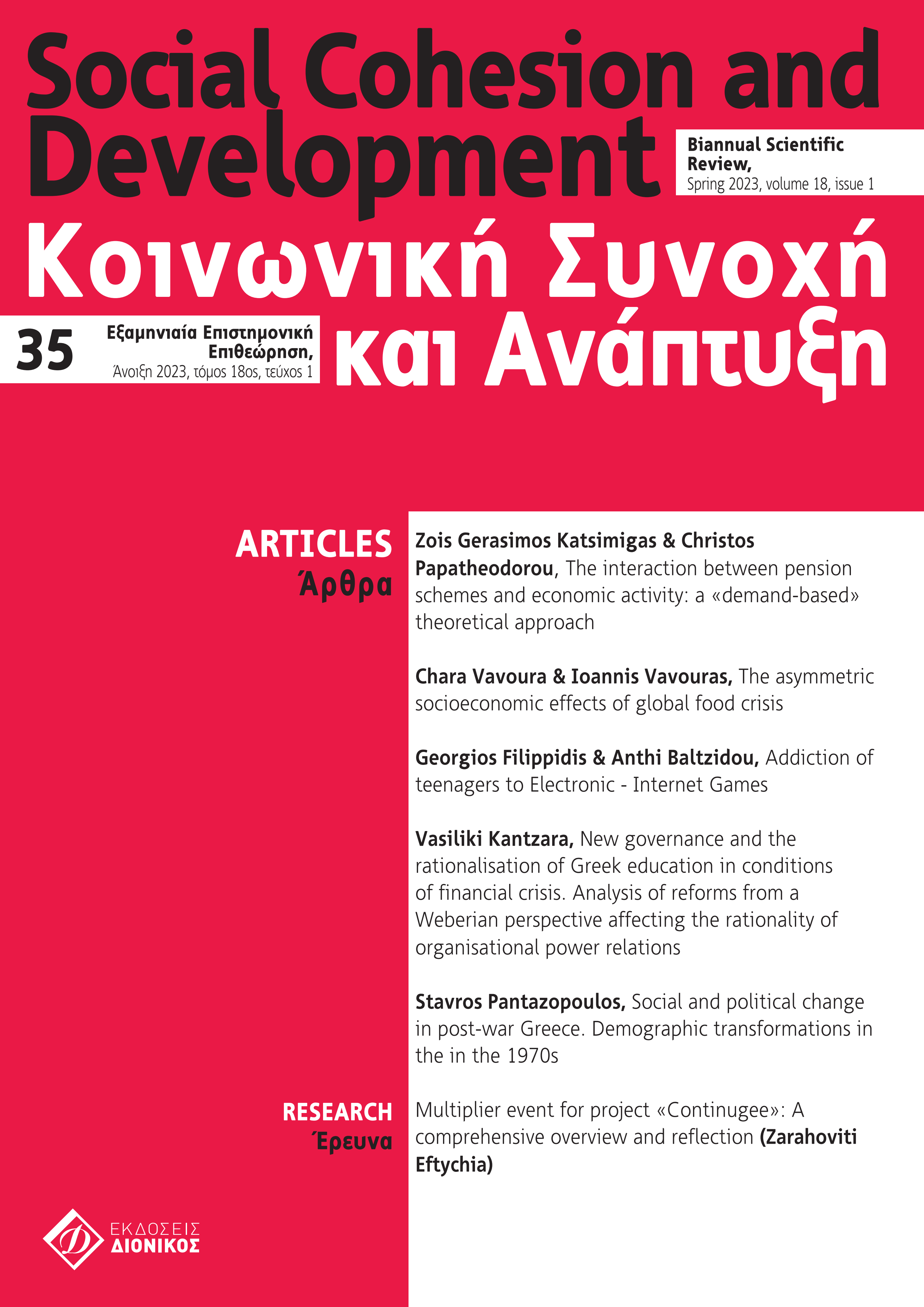Tackling the debt crisis in Greece: The role of the underground economy

Abstract
This paper aims at assessing the relative
importance of the underground or shadow
or hidden economy in the effort of tackling
the current debt crisis. Examining the case
of Greece, one of the EU countries that face
serious sovereign debt problems, we emphasize
the importance of controlling the hidden
economic activity, that is of incorporating
it into the official economy. Moreover, by
analyzing the factors affecting the part of the
economic activity which takes place outside
the official sector, we evaluate the potential
gains Greece could have obtained in case it
could have converged to the best practice or
even the average levels of the determining
factors of the hidden economy prevailing in
the rest of the OECD countries.
Article Details
- How to Cite
-
Manolas, G., Sfakianakis, G., & Vavouras, I. (2016). Tackling the debt crisis in Greece: The role of the underground economy. Social Cohesion and Development, 8(1), 25–35. https://doi.org/10.12681/scad.9085
- Section
- Articles

This work is licensed under a Creative Commons Attribution-NonCommercial-ShareAlike 4.0 International License.
Authors who publish with this journal agree to the following terms:
- Authors retain copyright and grant the journal right of first publication with the work simultaneously licensed under a Creative Commons Attribution Non-Commercial License that allows others to share the work with an acknowledgement of the work's authorship and initial publication in this journal.
- Authors are able to enter into separate, additional contractual arrangements for the non-exclusive distribution of the journal's published version of the work (e.g. post it to an institutional repository or publish it in a book), with an acknowledgement of its initial publication in this journal.
- Authors are permitted and encouraged to post their work online (preferably in institutional repositories or on their website) prior to and during the submission process, as it can lead to productive exchanges, as well as earlier and greater citation of published work (See The Effect of Open Access).







